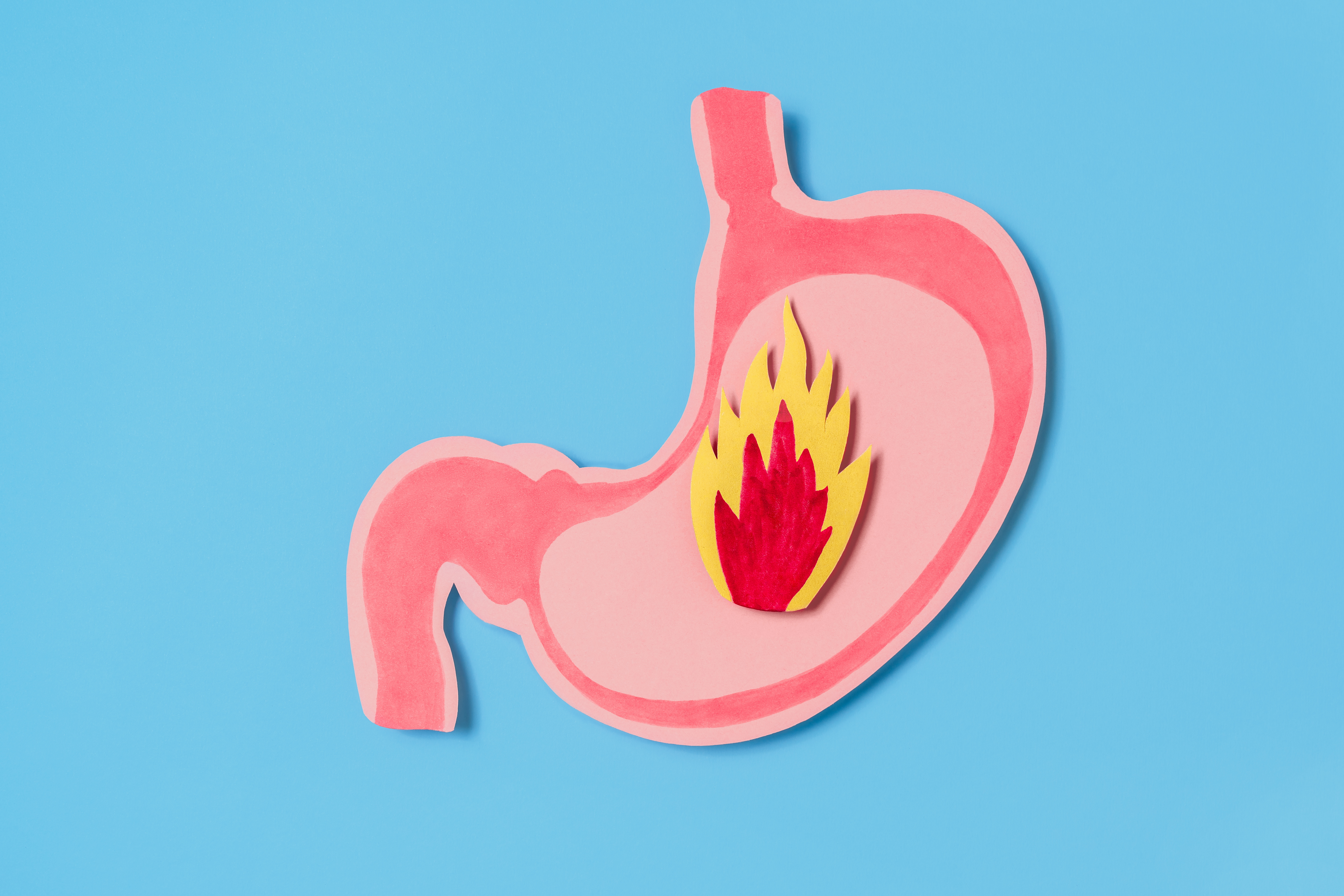10 Surprising Everyday Hacks to Stop Acid Reflux Before It Starts
Acid reflux, a condition characterized by the backward flow of stomach acid into the esophagus, affects millions globally. This uncomfortable phenomenon often leads to heartburn, a burning sensation in the chest, and can progress to more severe conditions like gastroesophageal reflux disease (GERD) if left unchecked. The prevalence of acid reflux has sparked widespread interest in finding effective ways to manage it. While medications are a common recourse, they often come with side effects and do not address underlying lifestyle factors. Therefore, incorporating everyday changes and making mindful choices can be a sustainable approach to managing this condition. This article delves into 10 surprising tricks that can help keep acid reflux at bay, offering a comprehensive guide to enhancing your quality of life through simple yet effective strategies. By understanding the triggers and making informed choices, individuals can significantly reduce the occurrence of acid reflux, leading to better overall health and well-being.
1. Dietary Adjustments - The Foundation of Reflux Management

Diet plays a pivotal role in managing acid reflux, and small changes can lead to significant improvements. Certain foods are known to trigger reflux symptoms, and identifying these can be the first step in controlling the condition. Common culprits include spicy foods, citrus fruits, tomatoes, chocolate, and caffeinated beverages. By moderating or eliminating these from your diet, you can reduce the frequency and severity of acid reflux episodes. Additionally, incorporating alkaline foods such as bananas, melons, and oatmeal can help neutralize stomach acid, providing relief. Eating smaller, more frequent meals rather than large ones can also prevent the stomach from becoming too full, reducing pressure on the esophageal sphincter. This dietary approach not only aids in managing reflux but also promotes overall digestive health.
2. Mindful Eating - Slowing Down for Digestive Health

Mindful eating is an often-overlooked strategy that can significantly impact acid reflux management. This practice involves paying full attention to the experience of eating and drinking, both inside and outside the body. By eating slowly and chewing thoroughly, you allow your digestive system to process food more efficiently, reducing the likelihood of reflux. Mindful eating also involves recognizing hunger and fullness cues, preventing overeating, which can exacerbate reflux symptoms. This practice encourages a deeper connection with food, promoting healthier eating habits and better digestion. By incorporating mindfulness into mealtime, individuals can not only enjoy their meals more but also support their digestive health, creating a holistic approach to managing acid reflux.
3. Posture and Positioning - Aligning for Relief

The way we position our bodies during and after eating can have a profound effect on acid reflux. Maintaining an upright posture while eating and for at least two to three hours afterwards can help prevent stomach acid from flowing back into the esophagus. Lying down or slouching immediately after a meal can increase the risk of reflux, as gravity no longer aids in keeping stomach contents in place. Elevating the head of the bed by about six to eight inches can also be beneficial, especially for those who experience nighttime reflux. This elevation helps keep stomach acid in the stomach, reducing the likelihood of reflux during sleep. By being mindful of posture and positioning, individuals can take simple yet effective steps to manage acid reflux symptoms.
4. Hydration - The Role of Water in Digestive Health

Staying adequately hydrated is crucial for overall health, including digestive health. Water helps dilute stomach acid, reducing the risk of acid reflux. However, the timing and method of hydration are important. Drinking large amounts of water during meals can increase stomach volume and pressure, potentially leading to reflux. Instead, it's advisable to sip water throughout the day and limit intake during meals. Herbal teas, such as chamomile or ginger tea, can also provide soothing benefits for the digestive system. Proper hydration supports the body's natural processes, aiding in digestion and helping to prevent the occurrence of acid reflux. By making mindful choices about hydration, individuals can support their digestive health and reduce reflux symptoms.
5. Stress Management - The Mind-Body Connection

Stress is a well-known trigger for many health conditions, including acid reflux. The mind-body connection plays a significant role in digestive health, and managing stress can lead to a reduction in reflux symptoms. Techniques such as deep breathing exercises, meditation, and yoga can help reduce stress levels, promoting relaxation and better digestion. Regular physical activity is also beneficial, as it helps release endorphins, the body's natural stress relievers. By incorporating stress management techniques into daily life, individuals can improve their overall well-being and reduce the frequency of acid reflux episodes. A calm mind often leads to a calm digestive system, highlighting the importance of addressing emotional health in managing physical conditions.
6. Smoking and Alcohol - Eliminating Triggers

Smoking and excessive alcohol consumption are major contributors to acid reflux. Nicotine in cigarettes can relax the lower esophageal sphincter, allowing stomach acid to flow back into the esophagus. Alcohol, particularly in large quantities, can irritate the stomach lining and increase acid production. By quitting smoking and moderating alcohol intake, individuals can significantly reduce their risk of acid reflux. Support groups, counseling, and nicotine replacement therapies can aid in smoking cessation, while mindful drinking and setting limits can help manage alcohol consumption. By eliminating these triggers, individuals can take control of their acid reflux and improve their overall health.
7. Weight Management - Balancing for Better Health

Maintaining a healthy weight is crucial for managing acid reflux. Excess body weight, particularly around the abdomen, can increase pressure on the stomach, pushing acid into the esophagus. By adopting a balanced diet and regular exercise routine, individuals can achieve and maintain a healthy weight, reducing the risk of reflux. Weight loss not only alleviates acid reflux symptoms but also promotes overall health, reducing the risk of other conditions such as heart disease and diabetes. By focusing on weight management, individuals can take a proactive approach to improving their digestive health and reducing the impact of acid reflux.
8. Clothing Choices - Comfort Over Constriction

The clothing we wear can surprisingly affect acid reflux symptoms. Tight-fitting clothes, particularly around the waist, can increase pressure on the stomach, promoting acid reflux. Opting for loose, comfortable clothing can alleviate this pressure, reducing the likelihood of reflux. This simple change can have a significant impact, especially for those who experience frequent symptoms. By choosing comfort over constriction, individuals can support their digestive health and reduce the impact of acid reflux on their daily lives. This consideration highlights the importance of being mindful of everyday choices in managing health conditions.
9. Sleep Hygiene - Restful Nights for Digestive Health

Quality sleep is essential for overall health, including digestive health. Poor sleep can exacerbate acid reflux symptoms, creating a cycle of discomfort and restlessness. Establishing a regular sleep routine, ensuring a comfortable sleep environment, and avoiding heavy meals or caffeine close to bedtime can promote better sleep quality. Elevating the head during sleep, as mentioned earlier, can also prevent nighttime reflux. By prioritizing sleep hygiene, individuals can support their body's natural processes, reducing the occurrence of acid reflux and improving overall well-being. A restful night leads to better days, emphasizing the interconnectedness of sleep and digestive health.
10. Chewing Gum – A Simple Saliva Booster

Chewing gum, particularly after meals, can be a surprisingly effective way to combat acid reflux. The act of chewing stimulates saliva production, which in turn helps neutralize and wash down stomach acid. Saliva also aids in digestion and soothes the esophagus, reducing irritation from acid exposure. Opt for sugar-free gum with a mild, non-minty flavor—since peppermint can actually relax the lower esophageal sphincter and worsen symptoms. Chewing gum for about 30 minutes post-meal can help reduce the chances of acid making its way back up the esophagus. This small, easy habit is a practical, on-the-go tool that adds another layer of defense against reflux.
Embracing a Holistic Approach to Acid Reflux

Managing acid reflux requires a holistic approach that includes dietary changes, mindful eating, posture awareness, hydration, stress management, and lifestyle modifications. By understanding the triggers and making informed choices, individuals can significantly reduce the occurrence of acid reflux, leading to better overall health and well-being. Each of the strategies discussed in this article offers a unique way to address the condition, highlighting the importance of a multifaceted approach. By embracing these changes, individuals can take control of their digestive health, improving their quality of life and reducing the impact of acid reflux on their daily activities. This comprehensive guide serves as a roadmap to managing acid reflux through everyday changes and mindful choices, empowering individuals to live healthier, more comfortable lives.
